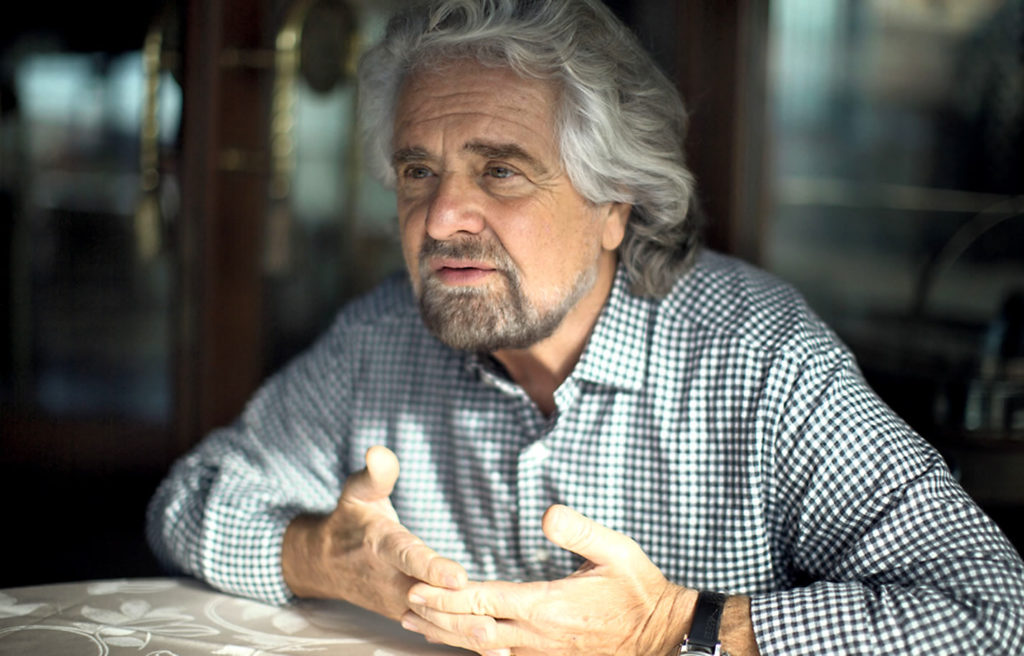
Beppe Grillo – The International Labour Organisation estimates that global unemployment could affect 25 million people (the 2008 crisis led to an increase of 22 million unemployed). Revenue is expected to fall free, unemployment will rise exponentially and the number of working hours will be reduced. Millions of people will fall below the poverty line.
Millions of Italians will not have guaranteed income in the coming months.
If in 2007 we had faced a financial crisis, which had spread to the real economy, here we are facing something much more radical, a crisis that affects all sectors. Restrictions on travel, trade and everyday life will have serious repercussions on business markets and people’s well-being. There are entire sectors that will suffer the consequences of this crisis until the end of the year, perhaps some supply chains will never recover or will never be able to return to normal. There could be a very rapid change in the labour market. We have always said that about 50% of jobs over the years would disappear due to automation and technological change. Those changes have now happened not in years, but in a single month. Because of a cough.
The contagion curve grows in parallel with economical instability and uncertainty of the future.
The way out of this crisis cannot be like that of 2008, when banks were saved at the expense of the people.
The time has come to put man at the centre for once and not the labour market. An evolved society is one that allows individuals to develop in a free, creative way, while generating their own development. In order to do this, all citizens must be guaranteed the same starting level: a Universal Basic Income (UBI), for everyone, from the poorest to the richest, that goes beyond this emergency.
Economic theory should develop methods to meet the basic human needs of each of us. When these needs are threatened then it is time to redefine our entire existence with a total reset.
Managing this crisis requires not only addressing the health emergency, but also protecting the entire population economically. A Universal Basic Income is the only panacea to the collapse of the system, to the instability that is psychologically and economically killing millions of families.
I’m sure most economists, while skeptical at times, will agree that the economy needs money injections right now. When economies slide into a recession, there is a “multiplier effect”: people lose their jobs, spend less, the economy shrinks, incomes decline and money literally disappears from circulation. Universal income would revive the economy, reduce the incidence of poverty in the population and its terrible consequences, and ensure that those who have to re-enter the labour market will be able to do so in better conditions.
And there are already those in the world who are activating this, from the United States, with the champion of the Green New Deal Alexandria Ocasio-Cortez explicitly asking the US Government for a Universal Basic Income; to the United Kingdom, where the basic income proposal is relaunched, as well as other states announce relief measures (India, New Zealand, Hong Kong, South Korea…).
The main sources of funding could be varied. You can go from taxing people with big fortunes, big digital and tech giants (Mark Zuckerberg, Bill Gates and Elon Musk have always been in favor of universal income), maybe the ones with the highest automation rate; or review capital gains and intellectual property taxes. Or so-called “ecotaxes”, such as Climate Income, with a tax on fossil fuels such as coal, oil and gas; or as it has been the case in Alaska since 1982 with the Alaska Permanent Fund: a dividend of the economic return of a public capital, which draws from fossil fuel companies. Each year, a portion of the revenue from state oil is put into a fund. The government rather than spending that money, returns it to resident citizens, including children, through an annual dividend.
As I have been saying for years now, it is up to us to sit around a table to convert the quality of our lives and create a system that creates people, not workers.
The First World War brought millions of women into factories and initiated the emancipation of women, the Marshall Plan revived the economy and well-being of the post-war war. The emergency we are experiencing could lead to an epochal, revolutionary turning point, which has always been superficially considered insane, and that could change our future for the better.
Is it time to overturn our status quo, if not now, when?






